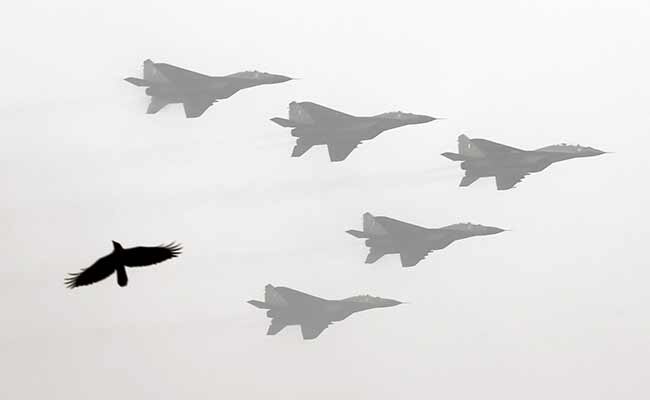
India's air force risks a major capability gap opening up with China and Pakistan without new western warplanes or if local defence contractors can't produce what the military needs in a timely manner.
"We do need to increase our defence preparedness," Prime Minister Narendra Modi told the opening ceremony of the Aero India airshow in Bengaluru on Wednesday.
A 2012 agreement to buy 126 Rafale fighters from France's Dassault Aviation has stalled due to a dispute over the assembly of the aircraft in India.
India's first homegrown fighter, the Tejas light combat aircraft, will finally be delivered next month, 30 years after it was conceived. But senior air force officers privately said they were unimpressed, with one former officer, an ex-fighter pilot, saying the plane was "so late it is obsolete".
Criticism of the Tejas was unfounded, said K. Tamilmani, a senior official at the Defence Research and Development Organisation (DRDO), a defence ministry agency which designed and developed the plane. "The Tejas has a safety record that is unbeaten," Tamilmani told Reuters by telephone, adding it would provide a platform to develop more advanced fighters in the years ahead.
While the navy is undergoing an accelerated modernisation drive, experts said India was vulnerable in the skies because of its reliance on a disparate fleet of ageing Russian-made MiG and French Mirage fighters, along with more modern Russian Sukhoi Su-30s. Half of India's fighters are due to retire beginning this year until 2024.
"It could lead to humiliation at the hands of our neighbours," AK Sachdev, a retired air force officer, wrote last year in the Indian Defence Review journal.
A coordinated attack by China and arch-rival Pakistan could stretch the Indian military, he added. It's a scenario defence strategists in New Delhi have been asked to plan for, Indian Air Force sources say, although experts say such an event is highly unlikely to happen.
India's air force has 34 operational squadrons, down from 39 earlier this decade and below the government approved strength of 42, a parliamentary committee said in December.
More than half of India's MiGs have crashed in recent decades.
At the same time, China is flying locally built fourth-generation J-10 fighters and is testing two fifth-generation stealth fighter jets.
Pakistan is upgrading its Lockheed Martin F-16 fighters as well as using JF-17 warplanes developed with China. It is also in talks to buy J-10s, according to Pakistani and Chinese industry sources.
To keep up, India is buying more Su-30s and upgrading other existing fighters.
The Rafale fighters are expected to replace some of India's MiGs and Mirage jets.
But India is insisting Dassault take full responsibility for production of the aircraft at a state-run facility in Bengaluru, Indian defence ministry officials have said.
France has said it will help Hindustan Aeronautics Ltd stick to delivery schedules, but that it cannot give guarantees for production of the aircraft made at a facility over which it has no administrative or expert control.
India would decide on the fate of the deal only after March, when a defence ministry committee delivers a report on the issue, Defence Minister Manohar Parrikar said at the airshow.
Under the Modi administration's "Make in India" programme, there is an emphasis on building a domestic defence industrial base to cut dependence on foreign supplies that have made India the world's biggest arms importer.
The DRDO for example is working on the Tejas Mark II, a slightly larger plane than the original, which will feature more powerful engines, better radars and upgraded avionics.
Track Latest News Live on NDTV.com and get news updates from India and around the world

